Parents, guardians, and caregivers play a critical role in their children’s sport experiences. They’re a young athlete’s best resources and their biggest supporters in a complex anti-doping system.
What You Can Do
- Ensure your child completes their anti-doping education.
- Help them check the status of their medications to determine if they’re prohibited.
- Help them apply for a medical exemption, if necessary.
- Ask questions about their supplements.
- Be aware that they may be tested at home, during training, or in competition.
- Know what doping control testing entails.
- Be a representative for them during doping control, if needed.
- Access resources and contact the CCES for more information.
Clean Sport Parents’ Guide
In a hurry? This document summarizes the role of parents and guardians before competition and during the sample collection process.
Make Sure Athletes Complete Their Education
Athletes who meet certain criteria are subject to the Canadian Anti-Doping Program (CADP) and may have a mandatory education requirement. This requirement ensures that athletes know what’s expected of them, and what to expect if they are selected for doping control! It applies to athletes in their sport’s National Athlete Pool (NAP) or who are going to major games like the Olympics, Paralympics, Pan American or Parapan American Games, or Canada Games.
Values-Based Education
The CCES takes a values-based approach to clean sport education. In the sport context, we define values-based education as an educational approach that places the development of an individual’s personal values and principles at the heart of their sport experience.
Your child’s team or sport organization will send an invitation to athletes in the NAP by email, including a PDF with links and instructions. They’ll sign up for an account in the CCES Online Learning Portal then complete one of the following courses, which is determined by their eligibility.
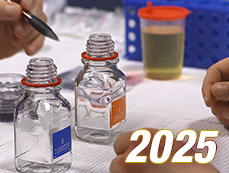
Clean Sport
Athletes 17 and older who are doing a CCES e-learning course for the first time (or who haven’t done a course in over a year) will complete Clean Sport.
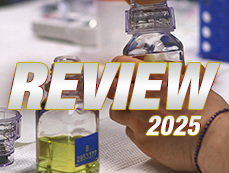
The Clean Sport Review
Returning learners who completed a Clean Sport course in 2023 will complete The Clean Sport Review.
Parents don’t have an education requirement but you’re encouraged to learn more about the CADP and support clean sport.
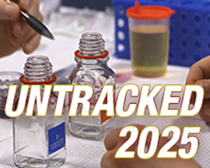
Clean Sport Untracked
An open and accessible version of Clean Sport where parents can access the same course material as athletes. Athletes in the NAP should not complete this version of the course.
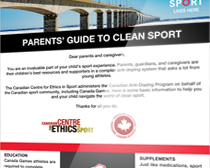
Clean Sport Parents Guide
Download the Parents’ Guide that summarizes everything you can do to support clean sport.

Continue Reading
More information about the steps you’ll need to take to check medications, prepare a medical exemption, and more.
Check Their Medications
Does your child use a prescription or over-the-counter medications? Those medications could include substances that are prohibited in sport, which is why two of the most important things you can do are:
- Check medications,
- Help your child apply for a medical exemption, if necessary.
The Prohibited List
The Prohibited List is an international standard prepared by the World Anti-Doping Agency (WADA) that identifies which substances and methods are prohibited in sport. Learn more about the categories in the Prohibited List on our page about banned substances and methods.
To avoid an inadvertent positive test, make sure you search for any and all medications your child is using in our online database, Global DRO. This should be done for all current and new prescription or over-the-counter medications.
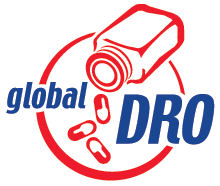 | Global DROThe best way to search for a medication in Global DRO is by its Drug Identification Number (DIN). You can also search by name or active ingredient(s). Download a PDF of the search results so you can refer to it later. |
Medical Exemptions
The CCES grants medical exemptions for medically justified uses of prescription medications that contain prohibited substances or require prohibited methods of administration. Help your child check the status of their medication(s), then determine their exemption requirements using the Medical Exemption Wizard.
If the athlete needs to submit an application, you may need to liaise with their physician to collect the required documents.
Click here to learn more about exemptions.
Doping Control
Doping control, also known as sample collection, is the process of collecting urine and blood samples for analysis. If your child has never been through doping control, it’s important for both of you to learn about the process. Athletes will learn about it in Clean Sport and you’ll learn in the Untracked version of the e-learning course, or from this video about the doping control process.
Tips for Doping Control
By the time an athlete reaches the highest levels of sport, they have a lot of experience with the sample collection process. Here are some Canadian Olympians’ top tips and observations from years of experience with doping control.
Doping Control at Home
Doping control can take place almost anywhere, including at training and in competition, as well as out of competition, at home. Unpredictable testing is key to protecting the integrity of sport, and at-home testing is a tool to help accomplish that goal. A Doping Control Officer (DCO) or chaperone could arrive at your home to notify your child that they have been selected for doping control.
Click here to learn more about the sample collection process.
Question Supplements
It’s natural to want to give your child every advantage on the field of play, so some people turn to supplements to correct or prevent nutritional deficiencies, support recovery, and more. However, due of a lack of regulatory requirements, supplements can contain prohibited substances, whether they’re listed on the label or not. This means they can be risky for athletes, so it’s important to question whether they’re needed, and if so, whether they are reliable.
Click here to learn more about supplements.
The Athlete’s Representative
Athletes can ask for someone to be with them throughout the doping control process to help protect their rights and fulfill their responsibilities. They should tell the CCES DCO or chaperone that they want a representative as soon as they are notified that they’ve been selected for testing.
That representative can be you, a coach, or other trusted adult who’s 18 or older. Your child and their chaperone can find you before sample collection begins. As a representative, you can ask questions, observe the process, and make comments about the process on the doping control form to give the CCES feedback. You can also model cooperative participation in the process and respectful behaviour towards the DCO.
Minors need an adult to accompany them as a representative. If your child is a minor, consider discussing who will act as their representative prior to events and competitions.
Access Resources and Get Help
Education and Online Learning
- Do you need an invitation to access online education? Contact the sport organization
- To determine education requirements, refer to the Online Learning page or contact the sport organization
- For help with technical issues, email [email protected]
Medical Exemptions
- Learn more about TUEs
- To submit an application or for more information, email [email protected]
- Call toll-free: 1-800-672-7775
Substance Inquiries
- Search in Global DRO
- Complete the online form
- For more information, email [email protected]
- Call toll-free: 1-800-672-7775